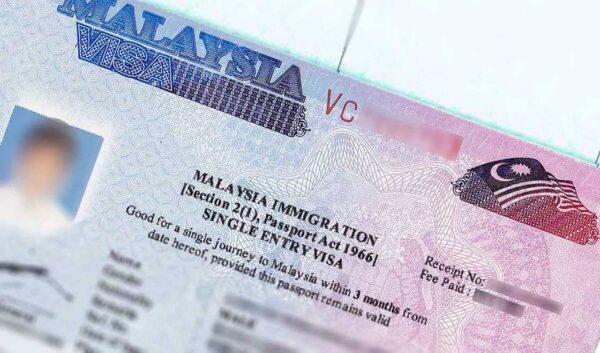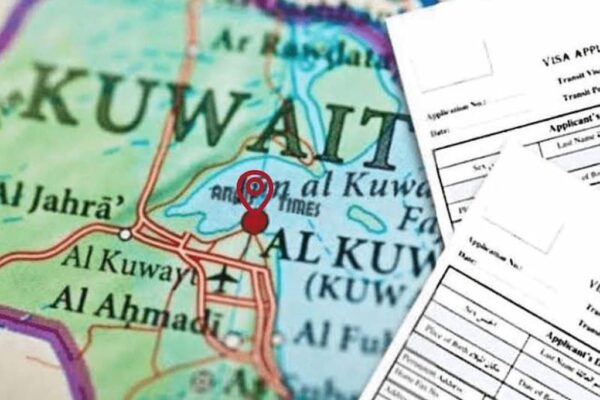Canada remains a top destination for professionals seeking global career opportunities. It is not a surprise that a large number of people are attracted to the Canadian labor market because the economy is diverse, immigration policies are hospitable, and quality of life is even outstanding. However, before you jump excitedly to pack your things and head north, there are some basic processes that you need to understand regarding obtaining a legit work permit. That's where this guide to Canada Work Permit FAQs comes in. Here, we'll answer the most common questions to help you navigate the process with clarity and confidence.
What Can I Do on a Canadian Work Permit?
Your physical work permit clarifies the exact restrictions that come with your authorization. The kind of work permit you qualify for will largely determine these limitations. Conditions could include what kind of employment you can do and where you can work. It also contains details about who you can work for, and duration of work in Canada. All work permit holders are not permitted to work in a business where there is a danger of sexual exploitation of some employees. Those with valid work permits are not considered permanent residents of Canada. They are required to leave the nation at the end of their legal stay. However, they can file for permanent residence after extending their work permit.
1. Where Do I Submit My Work Permit Application?
This is one of the most coming Canada work permit FAQs. The country of residence or nationality of the applicant determines where a temporary worker applies for a work visa in Canada. The international worker can apply through the Canadian visa office in their home country. It could also be in a place where they have one year of legal status. Most temporary work permits are available to anyone who can enter Canada without a temporary resident visa at any port of entry. Every Port of Entry has a Canadian immigration officer who is responsible for reviewing Canadian work permit applications.
2. What Are the Documents I Need for My Work Permit Application?
Now that we’ve addressed the location for application, let’s discuss the Canada work permit FAQS about documentation. Here are the general documents you'll need when applying for your work permit:
- Application form
- A valid passport
- Job offer letter
- Travel documents
- Marriage certificate
- Police certificate
- Proof of clean criminal record
- Health insurance
- Proof of sufficient funds
- Educational qualification certificates
However, you may need additional documents depending on the type of permit.
3. Are There Age Restrictions for Applying for a Canada Work Permit?
Foreign citizens must be 18 years old or older to get a work permit in Canada. There is no age limit for work visa applicants unless they apply through the International Experience Canada (IEC) program.
4. Can I Study While on a Work Permit in Canada?
If you fall into any of the following categories, you could be able to study with a work permit (without a study permit):
Your work permit was issued on or before June 7, 2023, and it is currently valid.
You must have received a letter allowing you to work while the authorities process your work permit application by June 7, 2023, at the latest.
These measures do not apply to work permit applications submitted after June 7, 2023.
5. Do Work Permits Guarantee Permanent Residency?
No, Canadian work permits do not guarantee permanent residency. However, having a temporary work permit is frequently regarded as an essential first step towards obtaining permanent residence. It is crucial to remember that although work experience and a legitimate job offer can be very beneficial when applying for permanent residence, other requirements must be fulfilled as well. Among these could be proficiency in the language, adequate financial resources, and academic credentials.
6. Can I Travel Outside Canada While Holding a Work Permit?
Yes, you can travel outside Canada with a work permit. However, it’s crucial to remember that the permit itself is not a valid form of travel license. In other words, you have no right to enter or travel to Canada with the permit. This implies that, depending on where you are from, you could need an eTA or guest visa along with your permit in order to leave and reenter Canada.
7. What Should I Do if I Lose My Work Permit Document?
You’ll need to file a police report and request for replacement from IRCC. To replace your permit, you must complete an application and pay a charge.
8. Are Work Permits Issued for Part-Time Jobs?
Yes, you can get a work permit for a part-time job, even though it’s quite rare. However, certain requirements apply, such as having a valid job offer for a part-time or non-seasonal job. Understanding Canada work permit FAQs is necessary to ensure quick navigation of application process.
9. Can My Family Accompany Me to Canada on a Work Permit?
Yes, they can. If you get a genuine job offer from a Canadian employer and also get a work permit, your spouse and dependent children may come with you to Canada. They may be qualified to live, work, or study. If your children are old enough to go to school, they can do so in Canada without requiring separate study permits.
10. How Is a Canadian Immigration Visa Different from a Work Permit?
A Work Permit allows an eligible foreigner to live and work in Canada for a specific period. However, it has restrictions on the sort of employment that can be pursued. It will not result in Canadian Permanent Residency on its own, but it can serve as a stepping stone toward that goal. A Canada Immigration Visa, on the other hand, grants its holder the right to live and work anywhere in Canada and take advantage of several Canadian citizenship benefits. Furthermore, with a valid visa, you can bring your family to the country and apply for citizenship after three years.
11. I've Gotten a Job in Canada; What Do I Need to Send to My Employer?
Depending on the type of job, a Labour Market Opinion (LMO, currently called an LMIA) might be necessary before applying for a work permit. You cannot apply for any type of work permit until your employer has applied for a Labour Market Opinion. You will include this Labour Market Opinion with your work visa application. A signed employment contract from both you and your Canadian employer is also required to be submitted with your application.
12. What Is a Labor Market Opinion?
A Labour Market Opinion (LMO) is a document that a Canadian employer should get before hiring a foreign citizen. It is essentially a document showing that there is a shortage of skilled workers with the specific skills needed for the position being filled. As a result, if the prospective employer were to hire a foreign worker, they would not be “snatching the role” from a Canadian worker who was already available. However, not all Canadian jobs need an LMO.
13. Do I Need a Medical Exam for a Canada Work Permit?
Foreign people applying to work in Canada may be required to undergo a medical examination. This is based on their expected duration of stay, previous residence, and occupation. With a few exceptions, if you plan to work in Canada for less than six months, you may not need a medical check. If you wish to work in a position that requires close contact with people or if you are an agricultural worker who has traveled to certain countries, you will need to undergo a medical examination.
14. What Are the Fees for the Canada Work Permit?
You must pay application fees when applying for a work permit. Work permits cost CAD$155. You must pay this fee each time you apply for an extension. It costs CAD$100 to apply for an Open Work Permit.
15. What Is the Validity of a Canada Work Permit?
This is a common concern raised in Canada work permit FAQS. Work permits in Canada are usually valid for 1-2 years. However, there are some exceptions. Typically, a visa officer won't provide a work permit for some time longer than the applicant's passport or the period specified on their Labour Market Impact Assessment (LMIA). Furthermore, a work permit will not be granted for some time longer than the foreign national's requested stay in Canada. Or longer than that needed to fulfill the terms of the job offer. A work permit's duration may also be reduced based on the program for which the applicant wants.
16. Can I Work for Any Employer With My Work Permit?
Work permits are only valid for the employer who applied for them unless it's an open work permit. This is referred to as a closed work permit. As a result, you are limited to working for the company listed on your Canadian work permit. Before hiring you, your employer had to acquire authorization from Service Canada or the Canadian government before obtaining a work permit. As a result, you can only work for that particular employer. If you have a work permit but no longer want to work for that employer and have gotten another employment offer, you must repeat the process to obtain a new work permit.
17. Am I Eligible for a Work Permit After Graduating from a Canadian School?
After graduation from an educational institution, you must get a work permit in order to work in Canada. Post-graduation work permits (PGWPs) are available for international students of certain recognized learning institutions. After your study program in a Canada university, you could still be able to find employment in Canada even if you are not qualified for a PGWP. Gaining Canadian work experience could make you eligible for permanent residency.
18. How Can I Extend My Canada Work Permit?
Temporary foreign workers who wish to extend their current work permit typically have to apply online. It is advised that you apply for a work permit extension at least 30 days before the current permit's expiration date. Although this is merely a suggestion, an applicant can actually submit an extension request until the final day of expiration.
Conclusion
Many people may feel that getting a work visa for Canada is a daunting task, but knowing the requirements and being well-prepared can simplify the process. The answers provided in this Canada Work Permit FAQs guide are meant to give you a solid foundation for the application process. You can visit the official website of the Government of Canada or contact reputable specialists for more information.
















